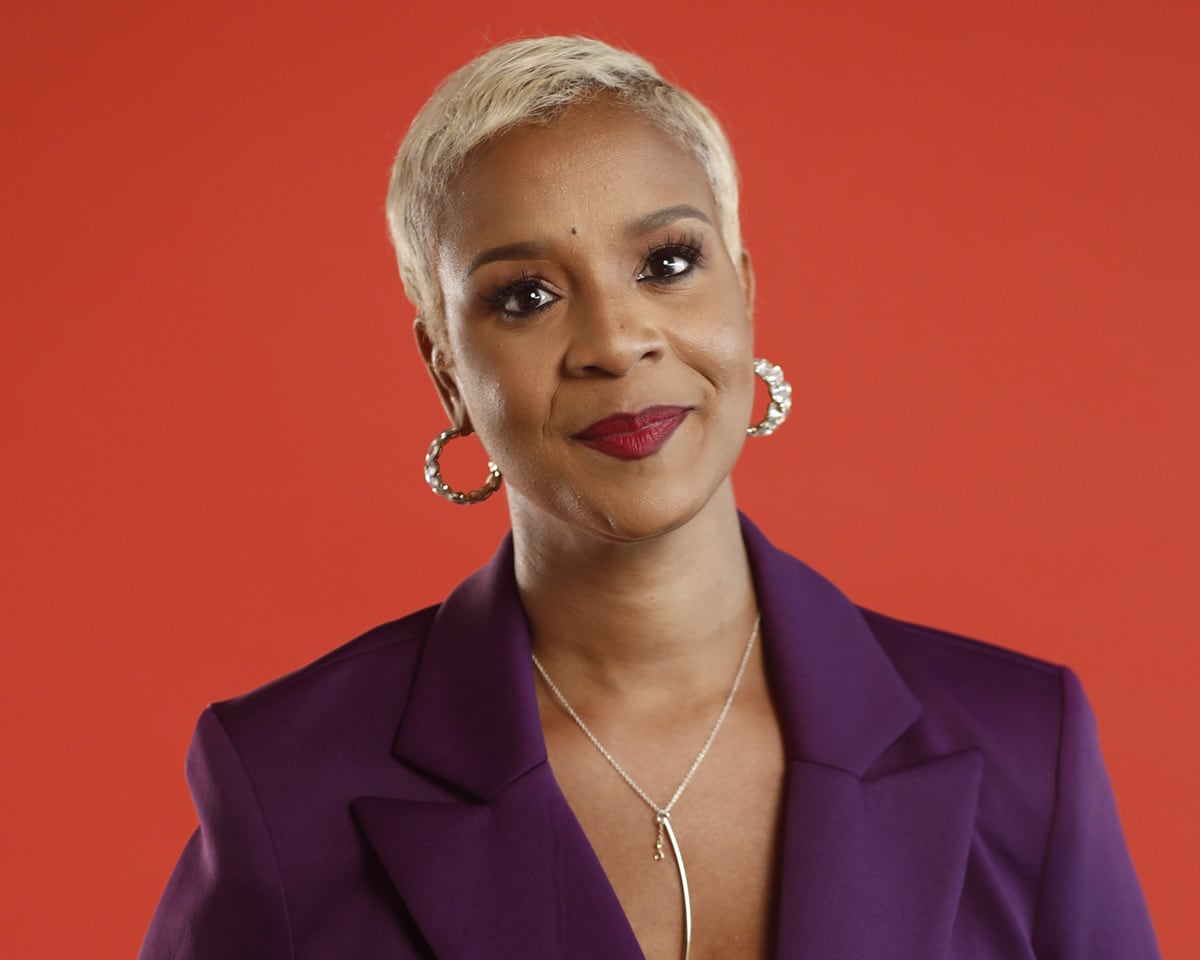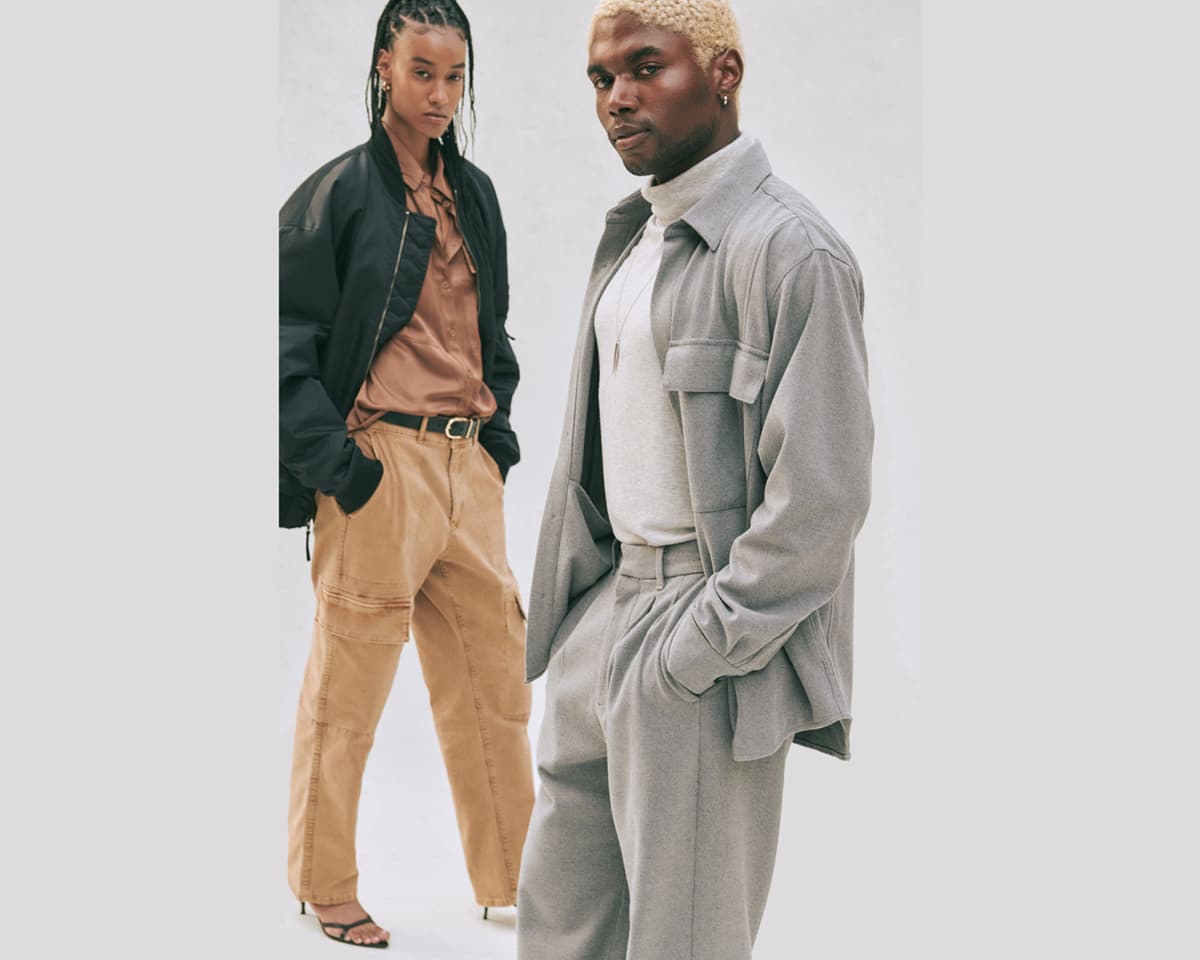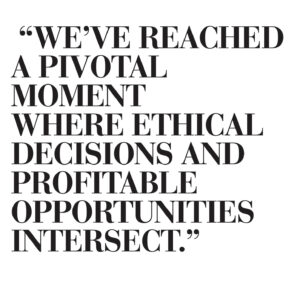FROM OUR NOVEMBER ISSUE: BLAZING NEW TRAILS

Imagine a decade in the dynamic yet challenging world of fashion, where your talents simmer silently, unnoticed, and unacknowledged. For years, my narrative was just this – an untold story, a silent song. After the tragic death of George Floyd, the fashion world awoke, and with it, the silent songs of many like myself became harmonious and loud. Voices, long muffled, now resonate loudly through the esteemed halls of iconic fashion houses.
During that period I was featured in Anna Wintour’s editor’s letter, shared two panels with Olivier Rousteing, and Tom Ford agreed to speak at our Black History Month summit. Both Ralph Lauren and Donna Karan spoke at our events, and Vogue and the CFDA donated a million dollars to our nascent non-profit. It felt surreal—a mixture of elation and anxiety about whether we were doing enough to seize this moment.
I was no longer a whisper. Top retail executives and fashion icons were not just seeing me, they were listening, truly listening. I was valued. This narrative weaves through the experiences of many Black professionals post-2020. We relished this newly found attention, the acknowledgment, and the respect that flowed our way. However, while individual voices were amplified, systemic change within the structures of the fashion industry is moving at a slower pace.
It’s time to face a glaring truth: black leadership is notably absent in the upper tiers of decision-making within our esteemed industry. Yet, juxtapose this with a startling revelation – Black consumers, by 2030, are projected to command a formidable $70 billion annual spending in apparel and footwear alone according to McKinsey Institute for Black Mobility. These consumers, as well as fashion-savvy shoppers of all colors and ethnicities, are brand agile, ready to pivot their loyalty to Black-owned or founded brands. This is not just a societal issue; it’s a colossal business opportunity.
The late, iconic Virgil Abloh and the appointment of Pharrell Williams at Louis Vuitton show that diversity is not charity; it’s a profitable investment. Yet, the absence of Black creative directors in the US is a glaring omission. Are the top echelons of U.S.-based fashion and retail businesses tuned into the seismic cultural shifts?
We’ve reached a pivotal moment where ethical decisions and profitable opportunities intersect. The choice ahead isn’t about sidelining the progress we’ve made in ethics over the past three years for profit. Instead, it’s an opportunity to amplify that progress by seizing the significant business potential that awaits us. This is a chance to effectively blend moral integrity with strategic growth.
Call me an unyielding optimist, but I assert that the essence of the fashion and retail industry is rooted in an optimistic spirit. Harlem’s Fashion Row, which blossomed from a seed of an idea into a flourishing multi- million-dollar entity, is a testament to the power of unwavering belief and optimism.
I am resolute in my conviction that our industry is on the brink of a transformative journey, poised to confront systemic racism head-on while simultaneously embracing unprecedented business expansion. I envision a future where Black board members are not exceptions but norms, where the appointment of Black CEOs at major retailers is a celebrated yet regular occurrence, painting a narrative of diversity and inclusion.
I foresee a time when Black creative directors are regular fixtures on global platforms, and Black design directors become a common presence in the U.S. fashion landscape. This vision is propelled forward by the proactive initiatives of companies like Gap Inc., which has invested over a million dollars in the growth of HBCU fashion departments. Additionally, Abercrombie & Fitch, Peanuts, Macy’s, Saks, and Nordstrom exemplify progressive corporations recognizing and unlocking the boundless potential found in partnerships with Black designers.
In this evolving environment, interactions between top-tier executives and Black professionals are marked by genuine engagement and meaningful dialogue. Every discussion, every exchange, is another step in our ongoing journey to redefine an industry known for its style and elegance, imbuing it with the essence of inclusivity and diversity.
We are the trailblazers, carving out a new future where each footstep lays down a legacy of transformative change and progressive advancement. Each stride is a testament to an industry that is as adaptive as it is creative, as resilient as it is elegant, marking the unfolding chapter of a journey where ethical and business landscapes merge, illuminating paths for other sectors to follow.
Top image: An excellent example is Nicole Benefield’s recent collaboration with Abercrombie & Fitch.

As Daniels says on HFR’s website, “Every day, I’m speaking to designers and listening to what they need. HFR is a work in progress. We don’t have all of the answers, but we are constantly in search of solutions. We will be satisfied when designers of color can create profitable businesses by doing what they love, and when we’ve convinced you to shop from these designers. We’ve created a system that allows access to any talented designer of color to thrive despite their socioeconomic status. We’re a work in progress. You’re welcome to come along for this incredible ride!”









